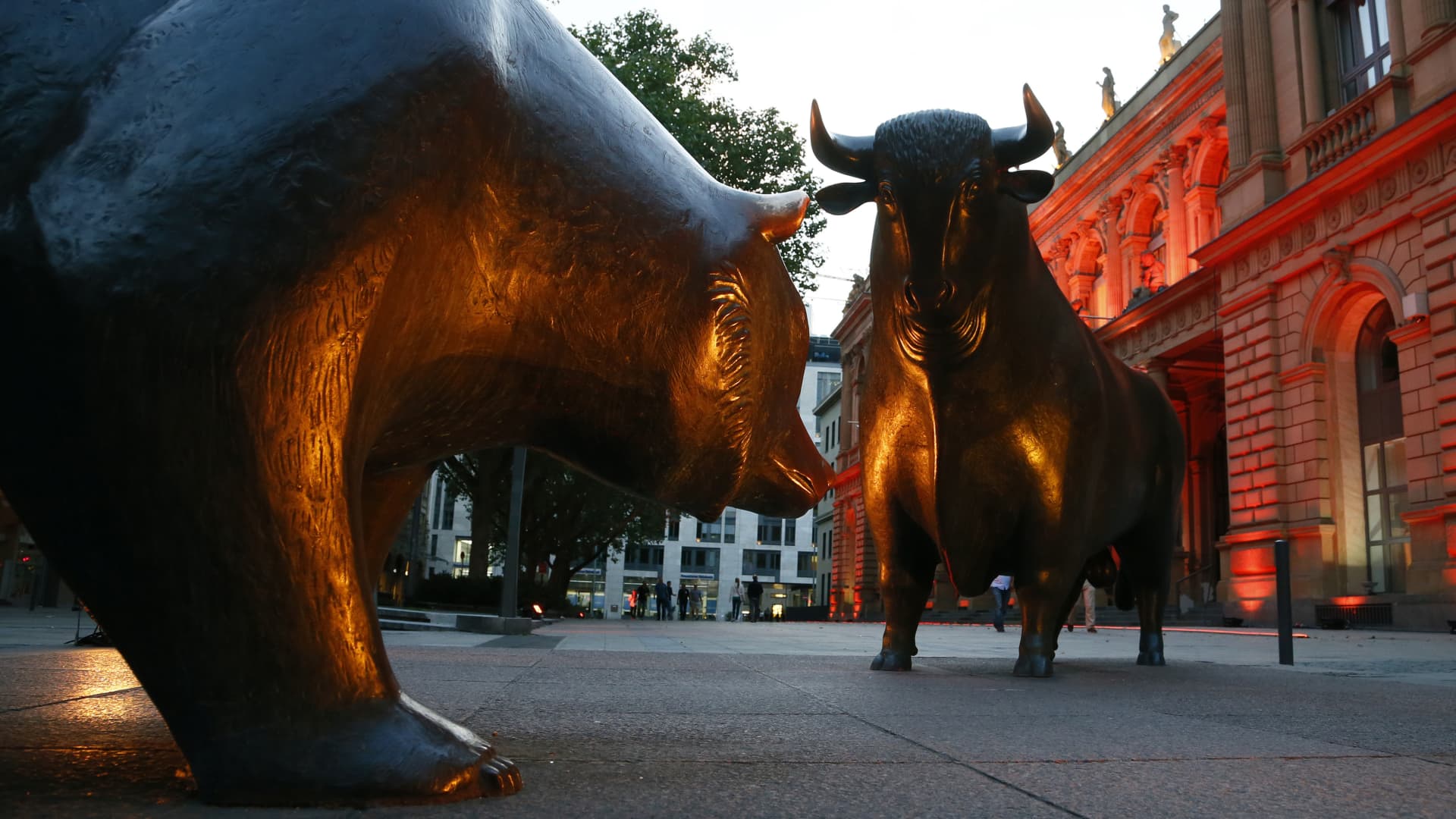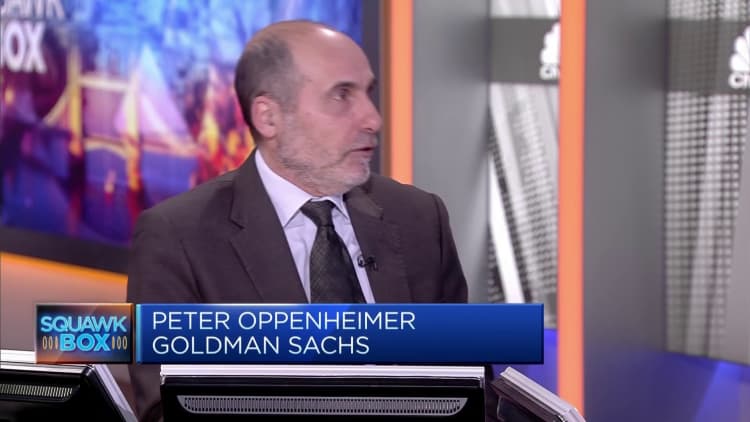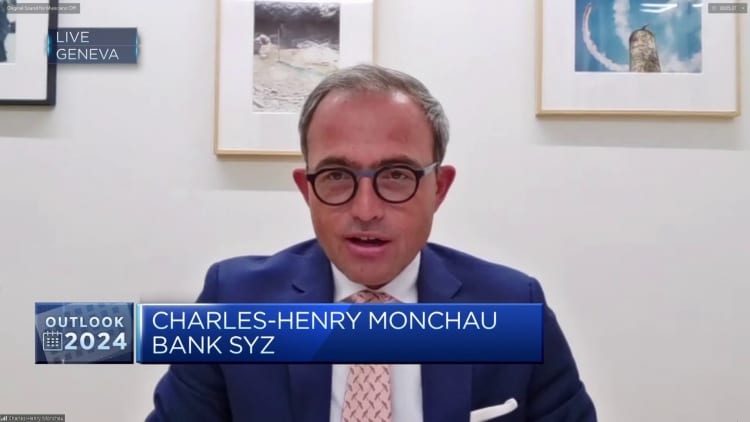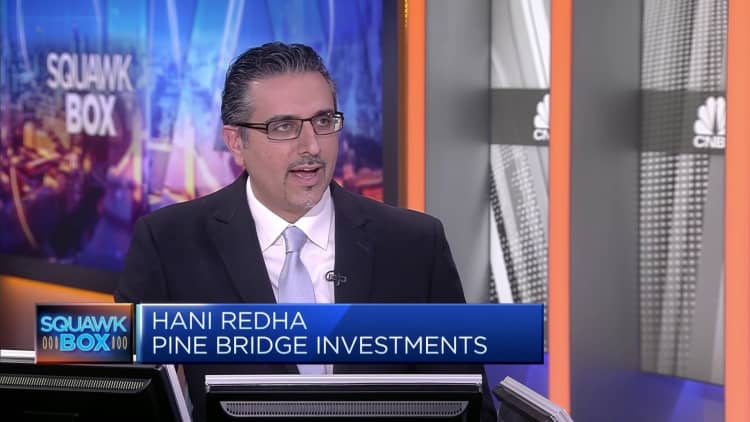
A bull and a bear statue stand outside the Frankfurt Stock Exchange in Frankfurt.
Ralph Orlowski | Bloomberg | Getty Images
After a choppy 2023, economists believe that the European economy is set for a transitional year, as major headwinds — high inflation and rising interest rates — fade into the rearview mirror.
Despite the euro zone’s tough economic backdrop, the pan-European Stoxx 600 stock index closed out the year 12.6% higher on hopes of a significant loosening of monetary policy in 2024 from the U.S. Federal Reserve and the European Central Bank.
Major stock indexes in Europe and around the world have made a more uncertain start to 2024, as they await fresh rounds of data and signals from monetary policymakers.
Global markets rallied during the final two months of 2023, as bond yields pulled back on hopes that the Fed and ECB would begin cutting interest rates in early 2024. The latter has yet to signal any imminent policy easing, even as the market price a first cut in March.
Despite December’s uptick in the headline consumer price index to 2.9% year-on-year, euro zone inflation remains on a general downward trajectory at both the core and headline level, after cooling more than was broadly expected in recent months.

“While wage growth is still firm and the labour market remains resilient, we expect both to soften in 2024 and look for core inflation to reach 2% year-on-year in [the fourth quarter of 2024], much earlier than projected by the ECB,” Goldman Sachs Chief European Economist Jari Stehn said in note on Friday.
“As a result, we see earlier and faster policy rate cuts than implied by the Governing Council’s recent communication.”
The Wall Street giant sees a first rate cut in April, followed by 25 basis point reductions at each meeting until rates reach 2.25% in early 2025, implying six rate cuts totalling 150 basis points in 2024.
Three key factors
This outlook was partially mirrored by Deutsche Bank, which holds that the European economy will begin its transition into expansion in 2024, but “won’t reach its new equilibrium.”
“The direction of travel is positive. We see the economy starting the year in mild recession/broad stagnation but growing again by H2-24,” Chief Economist Mark Wall said in a research note on Friday.
“We expect inflation to decline to target rapidly as the supply shocks dissipate, and the ECB to start cutting rates quickly.”

But the German lender noted that the structural effects of the pandemic, the Russia-Ukraine war, geopolitics, climate change and the green transition remain uncertain over the medium and long term, limiting visibility of the trajectory of growth and inflation beyond this year.
Deutsche Bank economists highlighted three key factors that will influence the path of the economy and markets: monetary transmission, the labor market and competitiveness.
Wall suggested that there are some indications that the transmission of monetary policy through to domestic banks is “starting to peak,” but noted there are other factors adding uncertainty to that assessment.

“Whether job hoarding is strong or weak will likely determine whether the labour market is more likely to be a drag on growth or a boost to inflation — we think the former more than the latter,” Wall said.
“Competitiveness has dropped to all-time lows despite gas prices unwinding much of the invasion shock. This reveals a complex and broad-based sustainability problem.”
He added that the 2024 elections will determine how government policy responds to this predicament.
‘Broadening out of equity returns’
The fourth-quarter rally for risk assets took European stock markets from “oversold to overbought” and shifted sentiment from “depressed in October to euphoric by year end,” according to Barclays European equity strategists.
“Short term, markets might benefit from some healthy consolidation, but given the broadening acceptance of a soft landing, and potential for 2024 rate cuts (more in the EU than US), as well as still cautious overall positioning, we feel the direction of travel for markets remains to the upside over 2024,” Barclays Head of European Equity Strategy Emmanuel Cau and his team said in a note Friday.
“Styles that should continue to benefit from a soft landing materialising, and consequent broadening out of equity returns, are Value and Size (Small Caps), and we maintain our Positive view towards both.”
The British lender maintains a neutral view on quality and growth stocks, which its strategists see as expensive but with the potential to benefit from falling yields.
